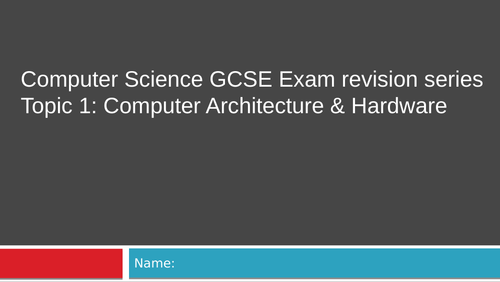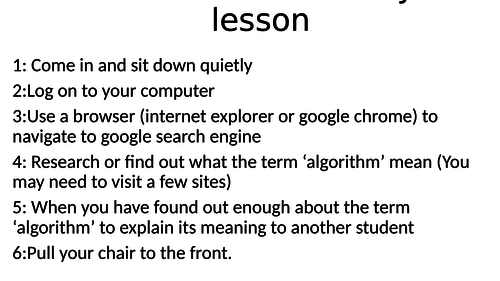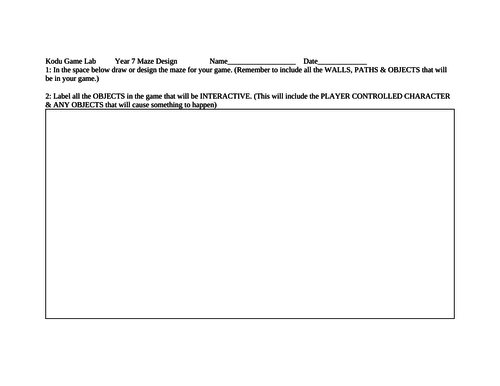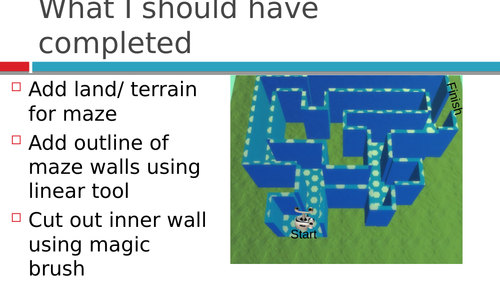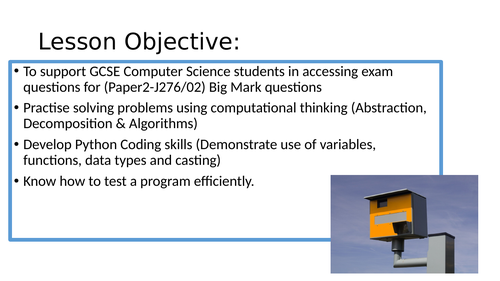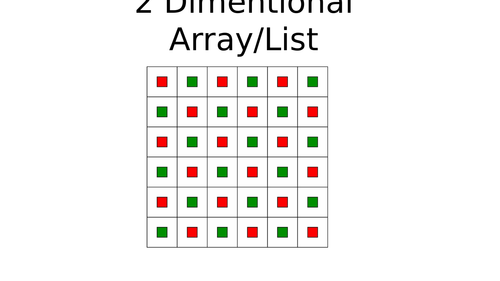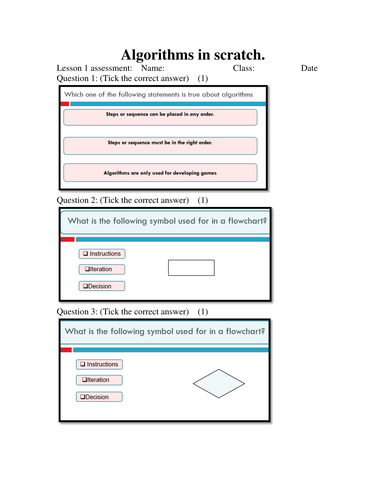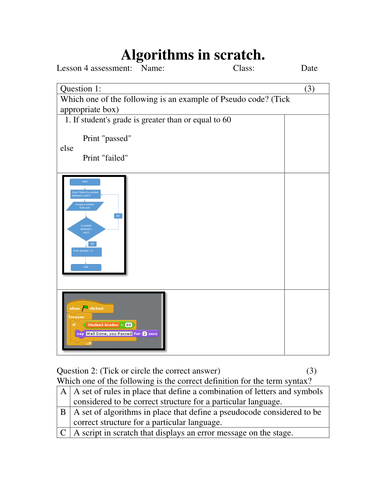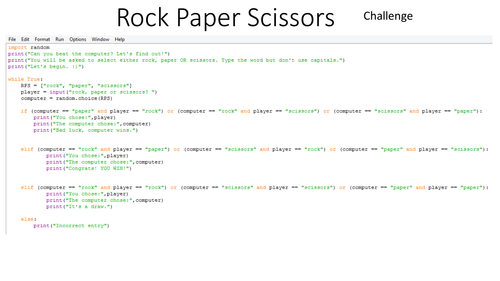
31Uploads
26k+Views
46k+Downloads
All resources

GCSE Computer Science Exam Revision: Topic 1
This comprehensive revision for GSCE computer science covers all the knowledge a student requires to achieve a top grade in the exam for computer architecture topic. Knowledge is structured into simple to understand slides, with concepts scaffolded into clear diagrammatic illustrations for students to self study. Non specialist teachers can use this PP to teach students vital knowledge they need to know for the exam. Also included are practice exam questions to familiarize themselves to the style of GCSE exam questions and also give them confidence in applying knowledge learned.

Introduction to algorithms
A gentle and friendly introduction to algorithms with a simple worksheet to enable students to develop computational thinking. Understanding how algorithms work and how they are used by computers is fundamental to achieving success in GCSE computer science. This lesson introduces KS2 and KS3 students to algorithms. This lesson could be used alongside the algorithms in scratch series.

Kodu-Rhythm Lesson 3(An Introduction to coding using Kodu)
Kodu is a friendly graphical programming language where students can build their own world and program objects within. This series of lesson uses kodu to introduce computer science terminology such as algorithm and variables to develop computational thinking skills.

Kodu-Rhythm Lesson 4 (An introduction to coding using kodu)
Kodu is a friendly graphical programming language where students can build their own world and program objects within. This series of lesson uses kodu to introduce computer science terminology such as algorithm and variables to develop computational thinking skills.

Computer Science J276/02 Computational thinking, algorithms and programming Lesson
To support GCSE Computer Science students in accessing exam questions for (Paper2-J276/02) Big Mark questions
Practise solving problems using computational thinking (Abstraction, Decomposition & Algorithms)
Develop Python Coding skills (Demonstrate use of variables, functions, data types and casting)
Know how to test a program efficiently.

GCSE Computer Science 2 Dimensional Array: Illustration with (python) worked example exam question
This PP introduces 2 dimensional lists/ array, how items are stored and retrieved in memory, with practical exercises and worked examples using python. In addition, there is a practice exam question with python solution for students to try, which will support knowledge and build understanding.

Computing Keywords Countdown starter
Use this countdown computing keyword quiz to introduce KS3 students to vital keyterms. Can be used as a starter or a whole lesson. A great resource to use as a cover lesson. Students are given some time to come up with computing keyterms from a range of letters. Points are awarded for words and words containing more letters score more points. Students are asked match the definition to the keywords. -
BIT
RAM
ROM
BYTE
BINARY
SYNTAX
BROWSER
SOFTWARE

Algorithms in Scratch Lesson 1
This 6 lesson structure course is aimed at KS3 students to develop understanding about coding techniques using algorithms. Each lesson contributes to the development of a maze game using scratch. Students can sign up for a free account. Notes are supplied with Power Point slides and each lesson is assessed individually. Medium term plan highlight how this scheme of work matches requirements of the new curriculum for computing. This unit will help prepare and support your students at KS3 to develop their knowledge and understanding and prepare for computer science at KS4. Lesson objectives are clearly explained, and non specialist should be able to use power point to deliver lesson comfortably. Lesson objective levels are linked with new curriculum levels. Keywords are reinforced each lesson. Students will enjoy coding and learn fundamental principles as they work their way through lessons. Although their are 6 lessons, depending on ability, you may need additional time. Also a benefit to allow students a few extra lessons to explore and demonstrate coding principles independently.
Algorithms, Coding, Key stage 3, scratch, computational thinking, sequence, selection, iteration, variable, syntax,

Algorithms in Scratch Lesson 4
This 6 lesson structure course is aimed at KS3 students to develop understanding about coding techniques using algorithms. Each lesson contributes to the development of a maze game using scratch. Students can sign up for a free account. Notes are supplied with Power Point slides and each lesson is assessed individually. Medium term plan highlight how this scheme of work matches requirements of the new curriculum for computing. This unit will help prepare and support your students at KS3 to develop their knowledge and understanding and prepare for computer science at KS4. Lesson objectives are clearly explained, and non specialist should be able to use power point to deliver lesson comfortably. Lesson objective levels are linked with new curriculum levels. Keywords are reinforced each lesson. Students will enjoy coding and learn fundamental principles as they work their way through lessons. Although their are 6 lessons, depending on ability, you may need additional time. Also a benefit to allow students a few extra lessons to explore and demonstrate coding principles independently.
Algorithms, Coding, Key stage 3, scratch, computational thinking, sequence, selection, iteration, variable, syntax.

Python Coding Exercise for GCSE Computer Science coursework preparation
This Power Point supports students preparing for GCSE computer science, using python code for notorious game rock paper scissors. Students are expected to examine the code by identifying variables, explaining the coding keywords, structure and approach. In addition, students are given the opportunity to test the code and come up with suggestions for improving the design.

